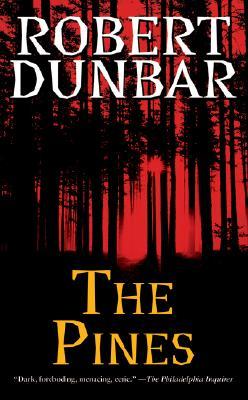 By ROBERT DUNBAR (Leisure; 1989/2006/2008)
By ROBERT DUNBAR (Leisure; 1989/2006/2008)
This novel was initially published in heavily cut form by Leisure back in 1989. Delirium Books published a restored edition in 2006, which is the version now out in paperback—courtesy of the novel’s initial publisher Leisure. Now if that’s not poetic justice I don’t know what is!
It’s a mighty good book: tough-minded, smart and even somewhat poetic. The inspiration is the legend of the Jersey Devil, an alleged subhuman living in the New Jersey Pines Barrens who preys on normal folk. Robert Dunbar, a prolific writer and media personality, is said to be one of the world’s foremost authorities on the Jersey Devil.
Dunbar tells his wide-ranging story through the eyes of several characters, most notably those of Athena. She’s a widowed ambulance driver living in the Pine Barrens whose cop boyfriend is brutally murdered. Wild dogs are suspected, but Athena knows something far scarier is afoot in the area. Her weird son Matthew has a much greater knowledge of this something—he has a strange habit of babbling incoherently about someone or something called “Chabwok.” Athena comes to believe that whatever lurks in the forest has her in its sights—and it comes to seem more and more like she’s right.
The narrative is structured in unique fashion, in short bursts of action that build up a cumulative sense of tension and unease. The story, such as it is, contains little in the way of forward momentum, but is still unfailingly scary and suspenseful.
There are some intense gore setpieces here, but for the most part the book is a thoughtful and sophisticated entertainment, closer to the Southern Gothic School of fiction than most traditional horror novels. Plus Dunbar’s presentation of life in the Pine Barrens is dense and atmospheric, and feels entirely real in its evocation of apprehension and despair.
I could have done without the perfunctory romance of the final third, however, with Athena finding love in the arms of her dead boyfriend’s bro. As such things usually do, this development feels grafted on and ultimately does nothing but distract from the main action.
